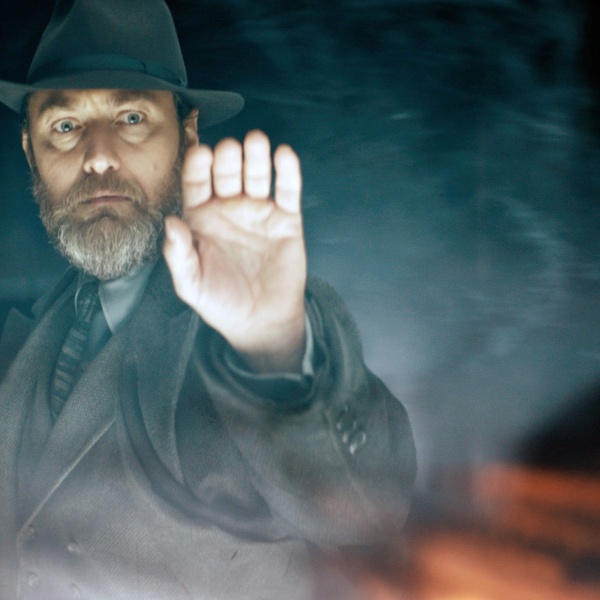
Combining the life-meets-art origin stories of “Ray” with the history-as-high melodrama of “Braveheart,” “Anonymous” marks a departure from director Roland Emmerich’s previous work as a purveyor of blockbuster destruction, but he still manages to destroy any credible sense of history with his speculative portrait of the man who might have been responsible for the works of William Shakespeare. Emmerich, casting his vote for the “Oxfordian” view of the playwright’s actual identity, turns what could have been an intelligent and provocative examination of fact and fiction into an overwrought and cretinous historical thriller that’s too busy disappearing into flashbacks and other frivolous digressions to bother discovering any actual truth.
Derek Jacobi, an actual Shakespearean actor who reportedly insisted on participating in the film, introduces its premise after bounding out of a rain-soaked cab onto a theater stage: although there is a popular biography for William Shakespeare, there are scholars who believe that the author of the some of the world’s most important and influential literary works was in fact someone else. From there, we’re introduced to Benjamin Jonson (Sebastian Armesto), a middling playwright on the run from Imperial guards; after hiding his mysterious, leatherbound cargo, he’s apprehended, and Robert Cecil (Edward Hogg) threatens to torture him unless he reveals its location. And then, because one flashback isn’t enough, the story dashes back in time yet again to chronicle the introduction of Jonson to Edward de Vere (Rhys Ifans), whom Emmerich and screenwriter John Orloff suggest is the actual author of Shakespeare’s plays.
Thankfully, we get yet another flashback in which we see de Vere’s upbringing as a charge of William Cecil (David Thewlis), advisor to Queen Elizabeth (Vanessa Redgrave in the Ifans era, Joely Richardson here). Although young Edward (Jamie Campbell Bower) is a prodigiously talented playwright and poet, William’s puritanical beliefs prohibit virtually all forms of artistic expression, and before long William manipulates Edward into marrying his daughter. But Edward’s gift for language instead wins the heart of Elizabeth, and the two of them fall into a torrid affair that William ends after she becomes pregnant.

Decades later, with his fortunes in ruins, Edward reaches out to Ben Jonson and agrees to pay him in exchange for putting on his plays, whose titles include “Macbeth,” “Romeo and Juliet,” and “Twelfth Night.” But when an actor named William Shakespeare begins taking the credit for the otherwise anonymous works, their increasing success attracts the attention of Robert, who conspires to take his dying father’s place at Elizabeth’s side.
As fun as it must be for Shakespeare scholars to offer their fan-fiction ideas about the identity of the playwright, it really makes almost no difference who wrote them, although it should be noted that conspiracy theories like the one Emmerich’s story is based on have probably been debunked twice as much as they’ve been supported. But “Anonymous” plays better as a soapy, costume melodrama than an expose of true events, not the least of which because Emmerich coaches his actors through some of the hammiest performances of their careers, short as some of them might turn out to be. Ifans is by far the standout among the ensemble, downplaying his usual manic energy to give an understated portrayal of an artist whose self-expression is as irrepressible as it is completely self-destructive. And Vanessa Redgrave mostly abets herself as the elder Elizabeth, whose advancing senility makes her especially susceptible to William’s, and later Robert’s lies.
Beyond his simultaneous resemblance to James McAvoy, Luke Evans and Orlando Bloom, however, Armesto is the film’s weakest link, especially since his character shoulders the largest responsibility plotwise, and yet makes none of Jonson’s actions remotely interesting. And it’s not just that he spends the whole film glowering from beneath his furrowed brow, or that he delivers every line as if he’s trying to make his voice sound deeper than it actually is; rather, it’s that he oddly lives up to the demands of the role of a playwright with no identity by failing to provide his character with one, so that when Jonson is supposed to come alive and fulfill his destiny at the end of the film, we don’t believe it, or care, for one second.
Meanwhile, as almost all of the other male characters are handsome and heroic or sniveling and unpleasant, Emmerich seems to have cast from a pool of actors who are all best known for replacing one another in films, because they mostly look alike without offering anything that’s too unique or different (Xavier Samuel, Sam Reid, and Jamie Campbell Bower are virtually indistinguishable.) But again, it’s Emmerich who deals the film’s death blow, not just because he cast these totally bland, pretty actors, but because he had them pitch their performances at somewhere slightly above the level of a soap opera. It’s actually a little sad that Edward Hogg didn’t have an actual moustache to twirl, because his hunch-backed malevolence ranks as one of the most cartoonish performances of the year – including the ones in “The Smurfs.”
Orloff’s screenplay, on the other hand, is a disastrously overcomplicated affair, partially because of its wormhole of flashbacks and partially because it frequently overshadows the “author’s identity” question with distracting, melodramatic digressions. For example, it admittedly could have been explained somewhere in the film, but why would Edward de Vere pick Ben Jonson to be the one to stage his plays, if Jonson wasn’t going to take the credit? Jonson is the instrumental figure in concealing/ revealing Shakespeare’s identity, but instead of making him more than a messenger, he spends the first third of the film denying responsibility for the plays, the second trying to manage Shakespeare the actor’s omnivorous greed, and then the third resenting that he can’t get either his own or Shakespeare’s plays produced. And to pay off his many scenes of boozy introspection and professional frustration? Orloff writes a tearful scene in which Jonson confesses his abject adoration of de Vere’s plays, which one supposes might have worked if Armesto hadn’t ruined it with his basso profundo blubbering.
Additionally, there are several other instances in which Orloff and Emmerich indulge in the melodrama and moral outrage of an era where playwriting is forbidden, but it seems like each of them was designed for the audience to go, “Oooh, burn,” rather than react with any sort of emotional identification. Moreover, Orloff contextualizes each play in the story as de Vere’s reaction to some new personal or political development. Like a musical biopic in which a singer-songwriter suffers from some horrible experience and goes, “You know, that would make a good song,” “Anonymous” posits that Shakesepeare’s plays were inspired and expressly designed to incite the theatergoing rabble to social outrage, if not full-fledged revolution. And who knows – maybe they were. But the combination of personal, romantic, artistic, social, and political ideas in a film that fails to lay its bag of snakes out straight is not too much of a good thing, it’s just plain bad.
Ultimately, “Anonymous” may be a fully-accurate depiction of the life and times of Edward de Vere, and a long-overdue expose of the true identity of the author of Shakespeare’s plays. But it fails on its own merits as a messy biopic and even messier historical epic whose authenticity becomes irrelevant when its execution is incompetent. Especially since the film wants to offer the audience all of the convenient and conventional payoffs of a well-told story, not just an accurately-told one: while one of the piece’s villains prevails, his movie punishment is to become advisor to a king that absolutely loves Shakespeare. Get it? After all of that, he’s going to have to watch the plays that he hates! In the meantime, our punishment is having to watch this terrible movie. Unless Shakespeare is something that helps you decide whether to be or not to be, skip “Anonymous.” [D]






